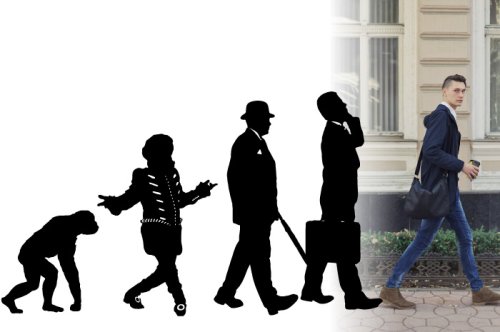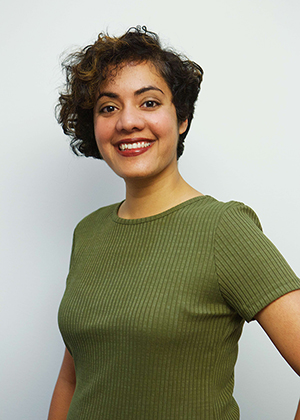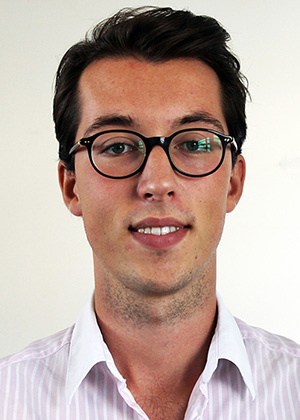From bowler hat to hipster bun
16 November 2017
Bowler hats in the 1960s. Pin stripe suits and braces in the 1980s. Banking stereotypes have existed for centuries. But banks have changed and a new set of skills are needed. So what does it take to be a banker in 2017? We go on a quest to find the bankers of the future, interviewing employees of ING as well as the Bank’s Chief HR Officer.

It’s banking, but for many of us, not as we know it. Digital disruption has changed banks. Today’s workforce is unrecognisable from that of the past. So what do the bankers of 2017 look like? Are they even bankers? What are they working on now and why are they working for ING?
The Bank’s Chief HR Officer, Hein Knaapen argues that as much as there is no banker of the present, there’s no banker of the future.
“There is such a great variety of profiles and requirements for jobs across ING, from people working for call centres to our Financial Markets specialists or people in support staff. So in a way it’s impossible to talk about bankers as such.”
Having said that, Hein sees some interesting patterns when you look at how our business is changing and how that links to our most-needed skill sets.
“We’re a digital bank and we’ll become only more digital. So the changes you see are more about customer intelligence, data savviness, creating a deep, differentiating customer experience, without always physically meeting the customer.
“It will also be much more about collaboration with other vendors since our vision is all about moving into a platform provider where we offer our services and also allow others to offer theirs.”
Competing with Amazon or Google
So how do we bring in all these newly-sought skills? Competition is hot, but Hein thinks ING is in a good position.
“We have a very strong brand, and we have a good reputation for being an innovative company, particularly in data and in IT. Amazon and Google sound very interesting – and I’m sure they are – but we have something to offer that people tend to like, which is our culture and way of working, and a way of dealing with our people that attracts people.”
Sounds good. But what do those next-generation ‘bankers’ think themselves? How do they feel about working for this fast-changing company at the ‘intersection of industries’? To start, let’s hear from three of them.
Look out for part-two in our series coming soon!

Name: Flavia Sequeira
Age: 34
Department: Enterprise Architecture
Country: Netherlands
Joined ING in? 2013
Why did you join ING? ING is on a mission of becoming a tech company with a financial function. I wanted to be a part of this transformation and make a difference.
What did you study? Computer Engineering.
What are you working on at the moment? I’m working on making ING a successful 21st century company through APIs and platforms. APIs allow software to talk. For example, when you ride an Uber, you’re using a map and make a payment. Both are APIs. When you think of platforms, think of places where people meet. Facebook, Amazon, and Airbnb come to mind, but also our own. Specifically, I work on how we design our APIs and how we think about platforms. I consider myself as an API thinker. My goal is to meet many people, and help them understand the changing business. I do this by giving talks, trainings and design workshops.
Would you consider yourself to be a banker? Yes. People have always needed ‘banking’ and not ‘banks’. I believe technology and design have the potential to provide just that. I do not wear business suits. I’m a banker who can programme, design, create and like my coffee black and in single shots.

Name: Lucian Pena
Age: 26
Country: Romania
Department: Enterprise Data Lake, ING Software Development Centre
Joined ING when? August 2017
Why did you join ING? For the challenge of working at crossroads, at the intersection of industries. To me, ING doesn’t feel like a regular company defined by the industry it operates in. It’s a bank with strong IT and digital focus. I would call it a tech company specialised in banking. Tech is in its blood and you can feel it. Since I joined ING, I feel that what we’re doing here is blending worlds (by blending industries and people from all over the world). It’s quite a challenge and a thrill to be part of this new world we’re making together.
What did you study? Bachelor in Computer Science and Economics, Master’s in Databases.
Would you consider yourself to be a banker? Tough question. I’m part of a financial institution, working for financial services, but I’m a tech person at heart. I love my job but I would not call myself a banker, rather an ’expert in changing industries’. In a way, we’re all game changers in our own right. Today’s banker at ING is something in between a digital nomad travelling from one country to another, a tech prodigy with both business and IT awareness and a Zen monk, who doesn’t get attached to things and embraces change. Namaste!

Name: Massimiliano Ungheretti
Age: 26
Country: Netherlands
Department: International Advanced Analytics (IAA)
Joined ING: February 2017
What did you study? A double BSc in Maths and Physics at Utrecht University, a Master’s in Pure Maths and Theoretical Physics at Cambridge (UK) and a PhD in Algebraic Topology at the University of Copenhagen.
Why did you join ING? After talking to other data scientists and seeing ING’s involvement in a Meetup community, ING showed up on my ‘radar’ as one of the top places to do data science. On meeting the team, I was convinced of the great possibilities to work on impactful use-cases using interesting data and cool technologies.
What are you working at the moment? My team explores and develops models beyond the common use of data sources, data analytics and technologies. We do this in many areas, but my focus right now is in fraud and credit risk. For example, together with one of my IAA colleagues and the Polish credit risk team, I’m developing a new model to assess online personal loan applications, with the aim of creating a better customer experience and being able to serve more clients.
Would you consider yourself to be a banker? Not really, I consider myself a data scientist who happens to work at a bank.
